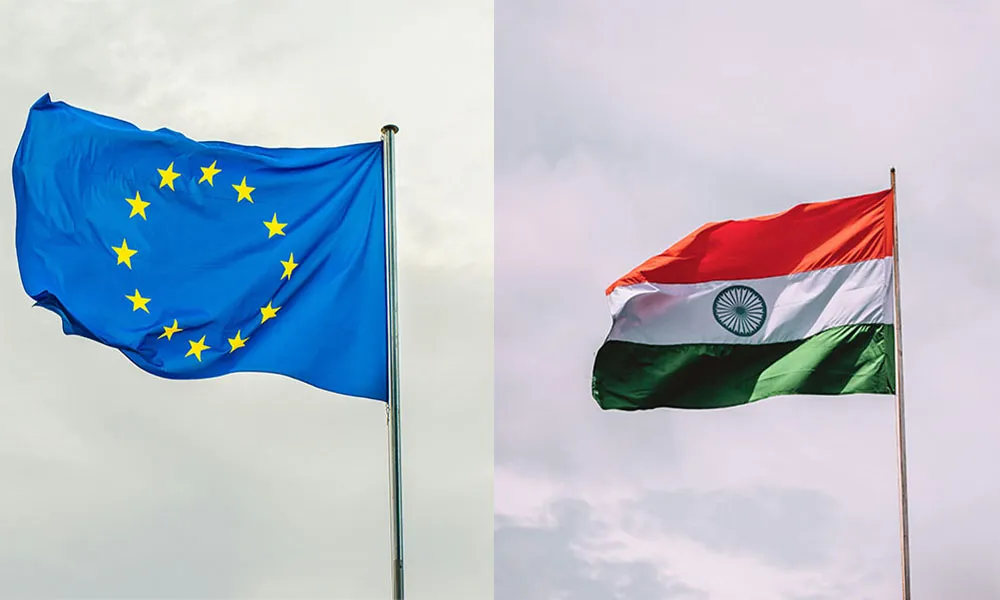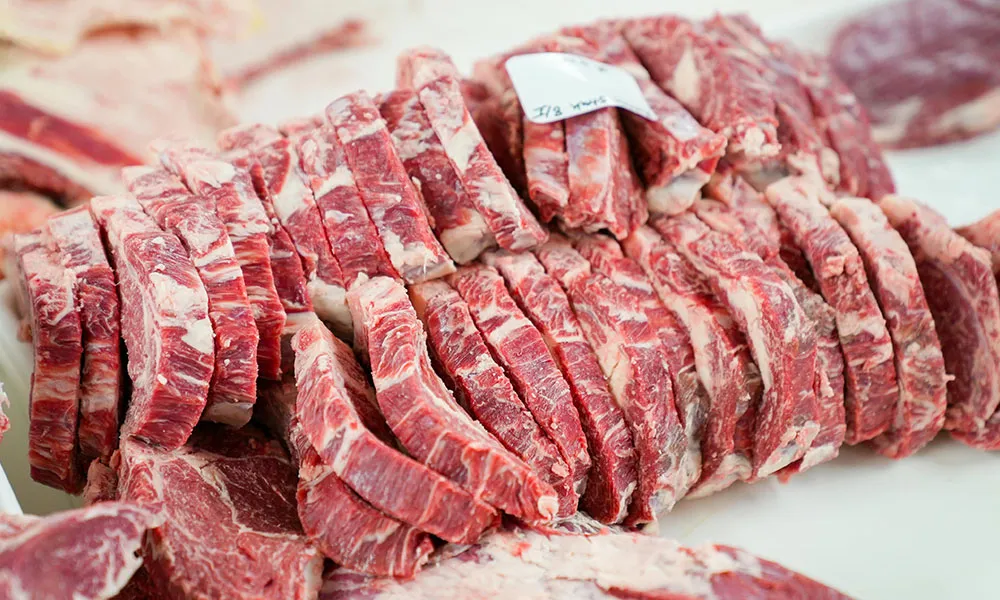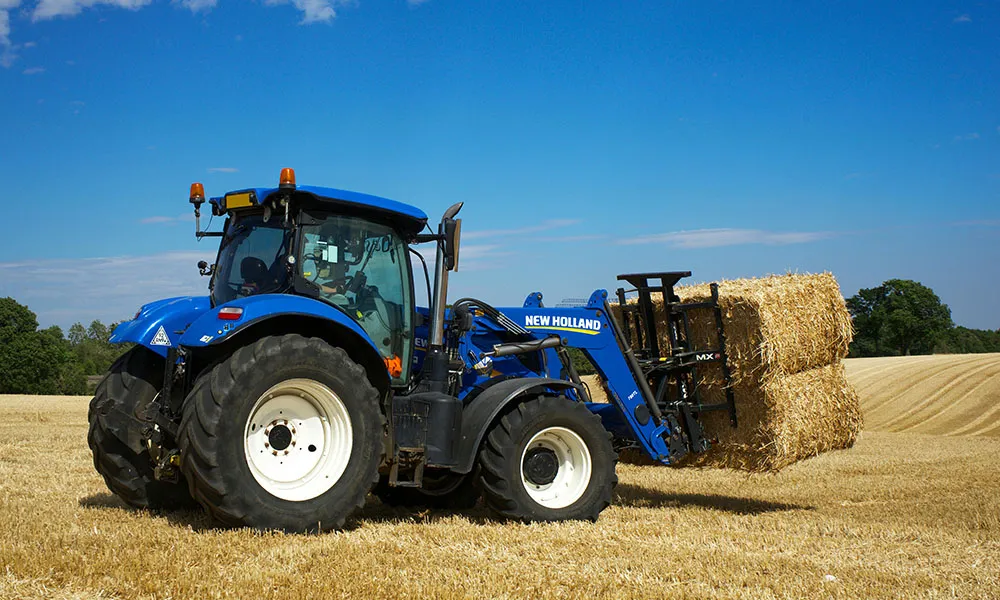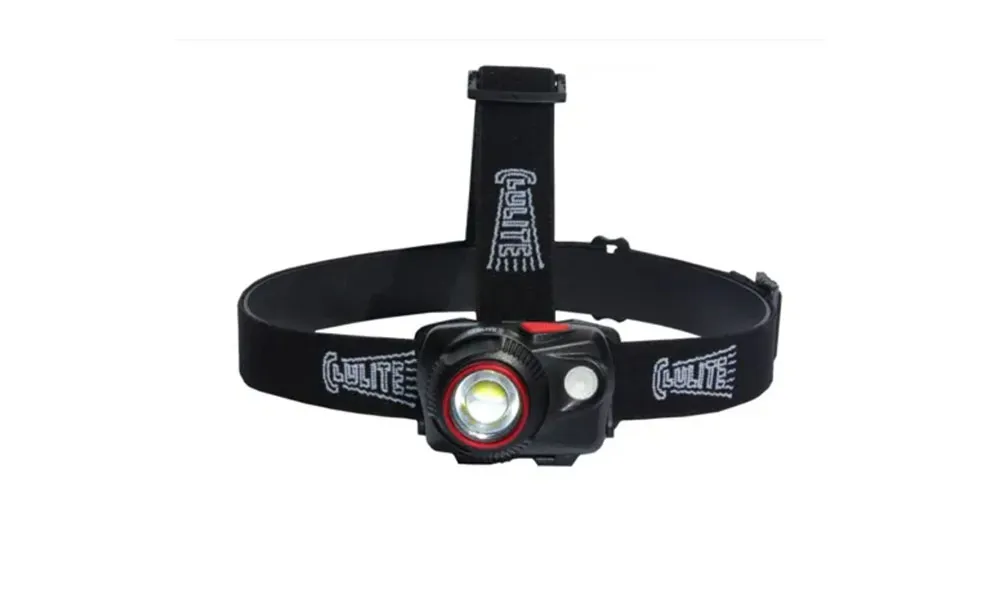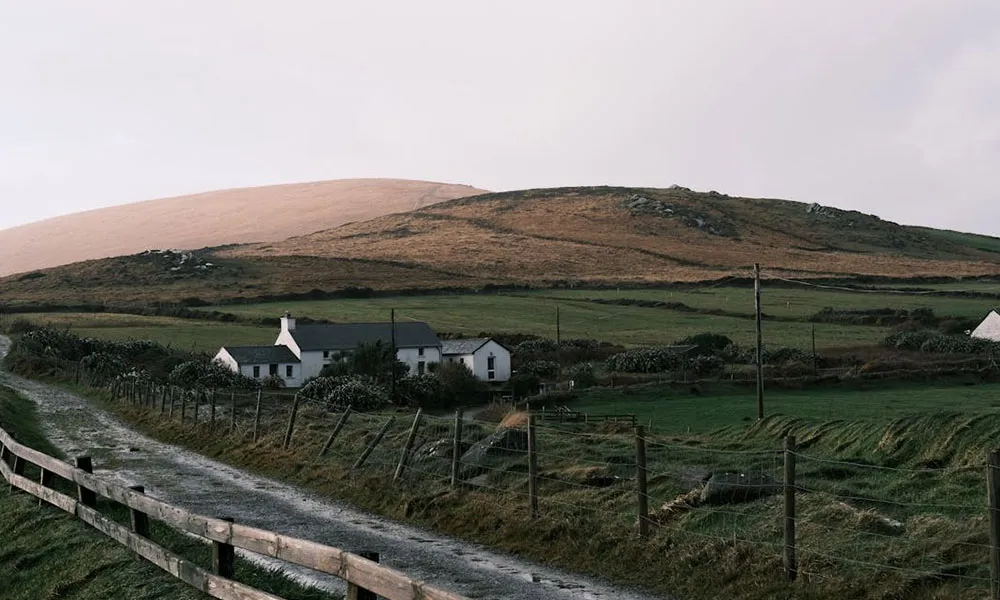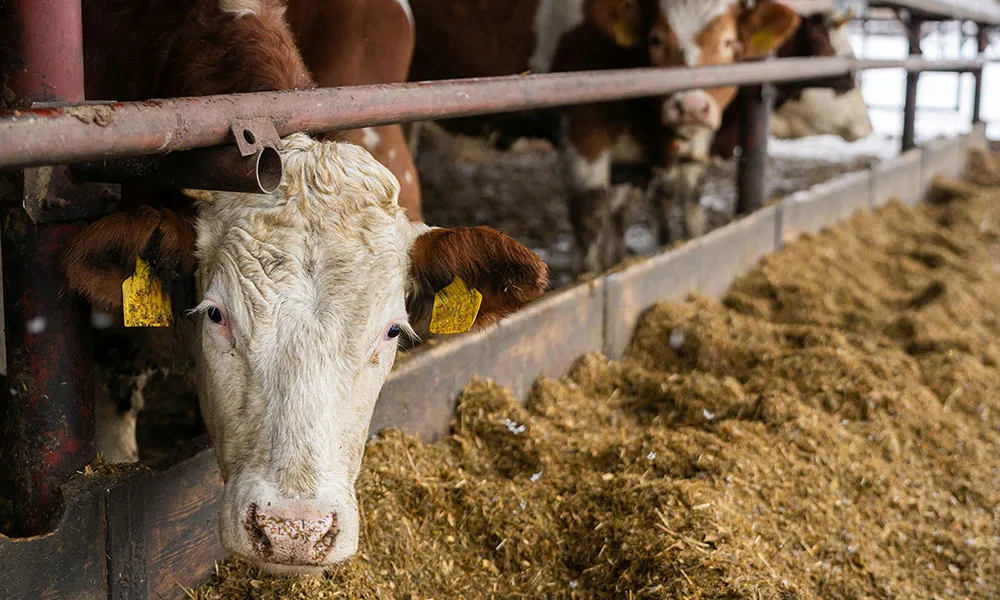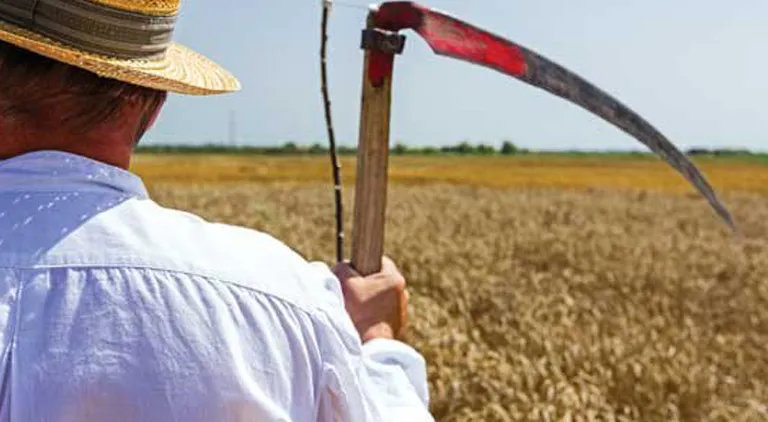
In recent weeks and months we farmers have been getting extremely bad press. Irish and English papers ran with headlines like “Scientists say eating less meat will tackle climate change” and “Eat less meat and dairy to save the planet”. They all seem to be battering farmers. Our own Taoiseach said eating less meat was one of the steps he was taking to stop climate change! Farmers are understandably annoyed at this attack, rightly seeing the danger in reduced sales of meat and dairy on their incomes. There was anger and a quick lashing out. Cries of “Vegan propaganda” and “What moron dreamed this rubbish up” were raised. I know where they are coming from. But science is science and it’s time to calm down and try to find the truth. What did they get right and what are they missing?
Inconvenient Truths
The problem with the idea that we can all stop eating meat for a more fruit and vegetable based diet appears to overlook an obvious problem.
-
The fact that the majority of fruit and vegetables we are eating is produced and shipped from halfway around the world. Often in high energy cooling units! Eating locally produced food that has been produced in your local area, be it meat or crop, is a must if we are to tackle climate change. It may not be a popular stance but we will have to look at the whole trade system. It is something no one wants to talk about as our entire system of living has become hinged on trade and trade deals. Unfortunately our system of living is killing the planet and us with it.
-
Agriculture is scrutinised to a life cycle footprint. When considering the carbon footprint of our food, the travel is added to the footprint of the product, increasing its overall environmental cost. The shorter the travel the less the footprint! In comparison transport emissions only takes into account the burning of the fuel. There is no life cycle study looking at the extraction of fuel or the construction and disposing of the cars! Why? Is it to perpetuate the idea that transport is less of a problem? Why did Leo Varadkar not say he was going to eat less imported food or fly less often when asked about what he was doing for the environment?
-
Most of the Agricultural emissions come in the form of Methane from animals. Science tells us this is over 20 times more powerful at heating the planet that Carbon Dioxide. However they don’t tell us that this methane only last between 8 and 12 years in the atmosphere; Carbon Dioxide on the other hand builds up in the atmosphere over centuries if there isn’t enough sequestration from plants, sea and wetlands, which there isn’t. This is why the beginnings of global warming can be traced back to the industrial revolution when we started pumping fossil fuels into the atmosphere
-
Our current growing methods rely heavily on chemical fertilisers, pesticides and herbicides. They are not sustainable in the long term without green manures and livestock integration. So the idea that reducing our meat intake alone will stop climate change is seriously misleading to the general public. By perpetuating this idea we are diverting attention from the huge problem that is our fossil fuel dependant industrialised way of life. Not to mention our continued use of plastics that not only pollute the landscape but also release carbon dioxide and methane when left out in the sunlight and continue to do so for hundreds of years after we finish using them! Shifting blame to agriculture while ignoring the fact that much bigger changes are needed in our consumer driven society is nonsense.
Agriculture VS Industry
Politicians and newspapers are very actively pointing the finger at agriculture. But agriculture is providing food that is vital for our life on the planet. Subsidising plane companies to fly us around the world is not. Nor is the use of plastic bottles, bags and cups. We survived thousands of years without these innovations. If we can’t manage to do so again, we may just have “evolved” to extinction. Much of the plastic products can easily be replaced without too much inconvenience, if the will is there. The recent vote to ban all single use plastics in Europe is a start.
But more needs to be done. Plastic clothes for example should be phased out and wool, cotton and hemp products promoted and incentivised immediately. The animals that we are complaining about actually offer much more ecologically sound products going forward than the alternatives we’ve replaced them with. They are at least biodegradable and renewable. That’s not to deny that livestock pose issues. There has been too large an increase in livestock numbers, particularly cattle, over the last few years; adding to the methane output. Add to that the fact that many of these animals are being fed in feedlots, with soya and grains that increase methane production; on ground that is completely void of plant life that might mitigate some of their effect on the climate.
Clearly this is a problem. To ignore that is folly. But slating the beef and dairy industry for all climate change and calling them the “biggest offenders” is an even greater one. Allowing people to think that by eating a couple less steaks they’re saving the planet from extinction will lead us to catastrophe. Changing our consumerist mentality towards clothes, technology and travelling is a far more important step. However telling people they need to change their whole life is a lot harder than telling them the “bad farmers are killing the planet” and to “eat a little less meat”.
Veganism is our Saviour!
Calling for more plant based diets completely ignores the fact that most forestry clearing around the world is due to crops. Soya, palm oil and coffee are now the biggest reasons that forests are being felled and entire ecosystems are being wiped out.
If we were to stop eating meat it would invariably lead to a rise in the consumption of these products, particularly palm oil, and as a result, more forests will be cleared. Yes, much of the soya is going to feed livestock. But most of that is going to factory farmed animals from beef feedlots, zero grazed dairy and of course heavily industrialised pig and poultry farms.
This is something that can be changed. Greater emphasis on promoting our more natural grass fed product is a must, and something most Irish farmers would be in favour of. But Palm oil and coffee will remain a problem if we continue to solely focus on livestock production as the problem. Why did Leo not say he was trying to cut out the palm products or drink less coffee?
Another problem vegan fanatics’ overlook: How to produce all these crops without animal manure? The world’s soils are depleting due to current growing practices. The UN stated recently that most soils would only produce 60 more harvests before complete depletion! If we are to reverse these trends then green manures will have to play a huge part.
Livestock manure is one of the best ways to increase soil fertility and replenish the soil humus. Grazing animals greatly improve soil quality. A healthy rotation of crops and grazing will have to become more prevalent. Rotating tillage ground to grazing will rejuvenate the soil for crops once more. Any suggestion of ceasing livestock production altogether is completely unsustainable!
Attacking us?
The problem with all these reports is that they are treating all beef and dairy worldwide as equal. As we know not all farming is practiced the same and not all have as big a footprint as others. Unfortunately the scientists are telling the truth. Animals do add to climate change in a significant way.
Cattle in particular give off methane, CO2 and Nitrous Oxide. They do and always have. No point in trying to deny it. They are also right in stating that the current methods of farming are adding to climate change. However here in Ireland we farmers need to take a minute. These findings aren’t just aimed as a personal attack at us. They are aimed at agriculture in general; worldwide.
Let me explain. If you take beef production worldwide then you will see that the authors of the Eat-Lancet Commission on food have a point in their findings. Beef in many countries are based on feedlots where animals are brought large amounts cereals/meal by trucks and tractors. Much of the feed they are getting is in the form of Soya that has probably been grown on ground that was up until recently part of “the world’s lungs”, the Amazon, or some other large forest area. In fact if the beef is from Brazil then the cattle are also likely to be living on land that has been cleared of carbon sequestering trees. This hugely increases the climate cost of beef worldwide.
Likewise dairy in many countries (even parts of Ireland!) has become a factory farm enterprise where cattle never see the light of day; never get to graze a pasture from one end of the year to the next. This is putting up the carbon cost of dairy worldwide. So we can take a breath and say “Ok it’s not a direct attack on us” Take a minute and we can understand where they are coming from.
They hope that by reducing the consumption of meat they will make it less profitable for these large scale farmers in developing countries, who as a result might stop clearing forests for beef and soya; perhaps reduce cattle numbers. They hope this will reduce the numbers of methane producing cattle worldwide and reduce the warming impact. It’s not a terrible plan... on paper.
Unfortunately we farmers know that what will actually happen is the small farmer who is producing a much more sustainable product will be the ones to lose out. Smaller farms in places like Ireland will be shut down! While it might reduce the cattle numbers worldwide slightly it will do nothing to mitigate climate change.
The huge feedlots will still be taking the same amounts of soya, the Brazilian herds will remain the same or increase stocking rates to make up for losses in price and nothing will change. If we keep the system that is driven by low prices we are going to keep hurtling to disaster.
The bigger, carbon producing farms can produce the product cheaper and on such a scale that any profit per animal makes it worthwhile. Farming in a carbon neutral way is a more expensive, work intensive, small scale process so profits will be eaten away if trying to compete with such farms.
What can governments do?
We need to challenge the narrative and change the system. We need to support the producer of more environmentally sustainable products. Make sure that the consumer knows where their food comes from and that they avoid products that are clearly unsustainable no matter how cheap they are.
We need to penalise more carbon intensive production styles and protect more carbon friendly producers as a whole, worldwide. Any carbon tax should be aimed at supermarkets. Shops should have to pay a tax on products from more carbon intensive farms. A much more useful idea, I feel, than a general carbon tax on farmers.
A carbon tax on farmer will just push up the cost of the product with no guarantee of increased prices. This would reduce any profit margin and put them out of business altogether. To have a chance of working any carbon tax will have to be on the shops and ultimately the consumer. Any imported food will have to be taxed higher than indigenous products. Beef from feedlots and other unsustainable products would have to be taxed higher than that from a small family farm.
This would ensure that more local and low carbon products would be the cheaper and best option for supermarkets and as a result consumers. Saving them from being pushed out by foreign carbon intensive products at lower costs. It would also reduce the amount of intensively processed foods on shelves. It would ensure the future of small farms, while the suggested carbon tax on farmers would only result in the demise of such farms.
A huge step that might need to be looked at, if we are to truly stop climate change, may be a call on world governments to offer subsidies or write down on debts of countries like Brazil and Indonesia to protect and re-grow their forests. Norway has already started this and others may need to follow. In a system where money talks cutting forests is making money for these countries. We may have to make forest growing and environmental protection more profitable than the current system. We can’t expect developing to take the financial hit of saving a planet that the developed world profited from bringing to the brink. These are surely more productive solutions for the environment than the newspapers wasting paper bashing farmers.
What can Irish Farmers do?
We farmers can do something too.
We can take this bad press as an opportunity. Use it as a chance to look at our farming practices and see how close we are getting to following the poor practices around the world.
We need to fight back against beef feed lots, over stocking and zero grazing in this country. They go against the “green” image we are marketing our produce as.
Kerrygold have already faced problems with this when they were taken to court over the marketing of “grass fed” dairy products in America. An individual took them to court claiming that the cows were also fed meal and silage indoors for up to five months a year. A little fickle no doubt but should be taken as a warning. If we are to claim we produce low carbon products we don’t want our whole market to be exposed to similar attacks because of a few industrial scale farmers are failing to maintain the high standards we set ourselves here.
We also need to look at how we can further reduce the carbon footprint of our produce. We say we produce a high quality product with fewer emissions than most other countries, and we do. But that’s changing. Other countries are starting to change and leave us behind, while we stand around beating our chest indignantly. We can do better.
A new grant for solar electricity is available through Airtricity and every dairy farmer should be jumping on the chance to get their parlours signed up. Not only does it reduce your carbon footprint it will reduce the parlour running costs. It’s a no brainer. Sheep and beef farmers might not see as much financial benefit immediately but it could end up making your product less open to any future carbon tax system, so it’s probably worthwhile.
Another area to look at is the feed we are giving our animals. A huge contributor to the carbon footprint (and cost) of our farms is imported grains; often soy coming from Brazil or some other country that has knocked forests to grow it. We will have to start reducing the amount of imported grains we use and look for alternate ways of feeding and finishing our cattle. More animals will have to be finished off grass and we will have to join the call to ban factory feedlots that are increasing the carbon footprint while reducing the price and marketability of our products.
A third thing to consider is the fertiliser usage. We are too reliant on chemical fertilisers which is adding to the carbon footprint (and again cost) of our products and failing to add to the humus quality of the soil. Tillage farmers in particular will have to start using more green manures and fertilisers.
Reducing herbicides and pesticide use is another must. Making sure the ones we use are used appropriately and not harming the environment is vital. As stated above, soils worldwide are losing fertility at a huge rate because of our farming practices. Are we going to be able to find another food source in 60 more harvests? To combat this, agro forestry and rotational farming will have to be introduced. I don’t mean just rotational crops but rotation of crops with grazing cattle and sheep and even free range pig and chicken production. It’s a personal opinion but it seems to be the only way forward to maximise production while ensuring soils are fertilised and maintained. This may mean farms diversifying. Perhaps even two or more farmers having to come together!
Whatever actions we take, one thing for sure is that no matter what happens we will need grazing livestock to be part of the plan. They are part of the ecosystem, part of the carbon cycle and trying to suggest otherwise is to walk off the cliff with blinkers on. The reality is farmers are contributing to global warming. The truth is they contribute a lot less than they are blamed for and they are one of the few industries that help store carbon. Most importantly we cannot survive without them!
RGA




